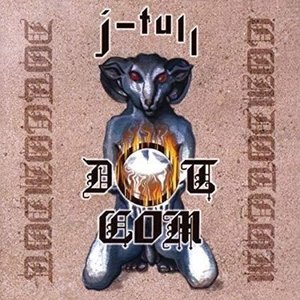Published on Sep 27, 1999
Call Ian Anderson a man without a cause. When his band Jethro
Tull was in its heyday during the ’70s, they were able to take the
worlds of progressive and modern rock and turn them on their ears.
Aqualung broke several molds, and still remains a
masterpiece. Bands had done concept albums before; few had
attempted albums made up of one, continuous song like Tull did on
Thick As A Brick (and, less successfully, on
A Passion Play). Jethro Tull helped to spearhead the folk
revival with such albums as
Songs From The Wood, and helped to prove the stupidity
behind the way some of the Grammies were awarded by winning the
first trophy under the heavy metal category. (I don’t think
Metallica has ever forgiven that one.)
But at the dawn of a new millenium, Anderson seems like he and
his group of ever-changing minstrels (the only constant being
guitarist Martin Barre, who’s been with the band since album number
two) don’t know what roads they have left to conquer. So while
their latest release
J-Tull Dot Com is musically pleasing, it shows a band that
does something dangerous: it finds a comfort level in ground
they’ve already plowed.
The first, obvious question that people will ask is: can Jethro
Tull still create enjoyable music after over 30 years together? The
answer is a very solid “yes”; many of the tracks on this disc are
ones you’ll find yourself going back to with a smile on your face.
The second question is: do Jethro Tull prove they’re still relevant
musically? Unfortunately, this question defies an easy answer.
For one thing, Anderson and crew seem to fall back to the days
of
Crest Of A Knave and
Rock Island for musical inspiration on
J-Tull Dot Com. The long drawn-out romantic ballads are
(thankfully) gone, but with them also seemed to go the sense of
urgency in the music.Tracks like “Bends Like A Willow,” “A Gift Of
Roses,” “Black Mamba” and “Far Alaska” all are okay to listen to,
but they don’t satisfy like a lot of Jethro Tull’s past
discography.
And I’ll get this one out of the way now: What the hell was
Anderson thinking with “Hot Mango Flush”? I have listened to this
song several times, and it still makes absolutely no sense to me.
Add into this the reprise “Mango Surprise,” and I have to think
that I’m missing some type of inside joke.
If you think that all I’m going to do is cry and moan about
J-Tull Dot Com, think again. There are moments on this album
that show me just why Anderson continues doing what he does best
(well, that and raising salmon). “Spiral” is a great way to kick
this album off (though I would have liked to have heard more of
Barre’s guitar work), and it features Anderson’s voice sounding its
best in years. (Again, I have yet to listen to
Roots To Branches – and I left the damn tape at work, so I
can’t compare the two – so it might have been just as good
then.)
“AWOL,” “Hunt By Numbers” and “Wicked Windows” all are equally
as good in comparison – and you have to admire the way Anderson
pulled off merging technology with pop musicianship on “Dot Com”.
Such a marriage could have been disastrous – but Anderson knows how
to use his craft well.
It’s not that
J-Tull Dot Com is a bad album, or is even a disappointment.
It’s just that, knowing their history, one tends to expect a lot
more out of this band than a newer, less established group. So when
they fail to meet even the slightest of our expectations, it seems
like more of a major thing than it really is.
J-Tull Dot Com reminds me a lot of the Tull from around the
era of
A, though less synthesized. If you liked that period of
Tull’s career – or the
Crest Of A Knave /
Rock Island bands, then
J-Tull Dot Com is going to be a treasure trove for you.
Otherwise, it’s a hit-and-miss effort that still comes out on the
winning end.
